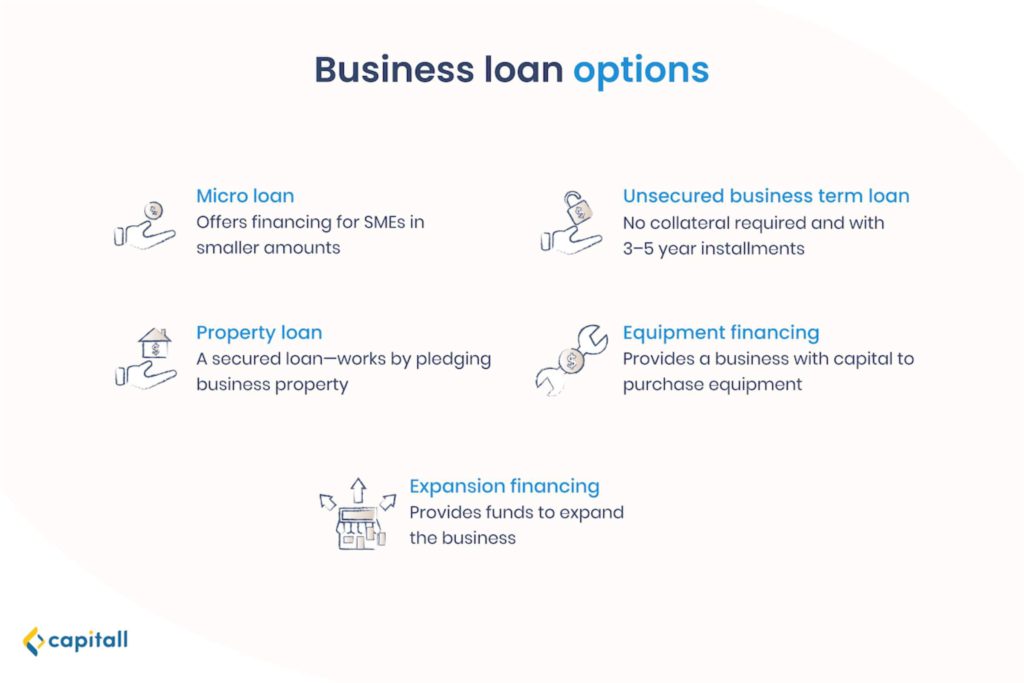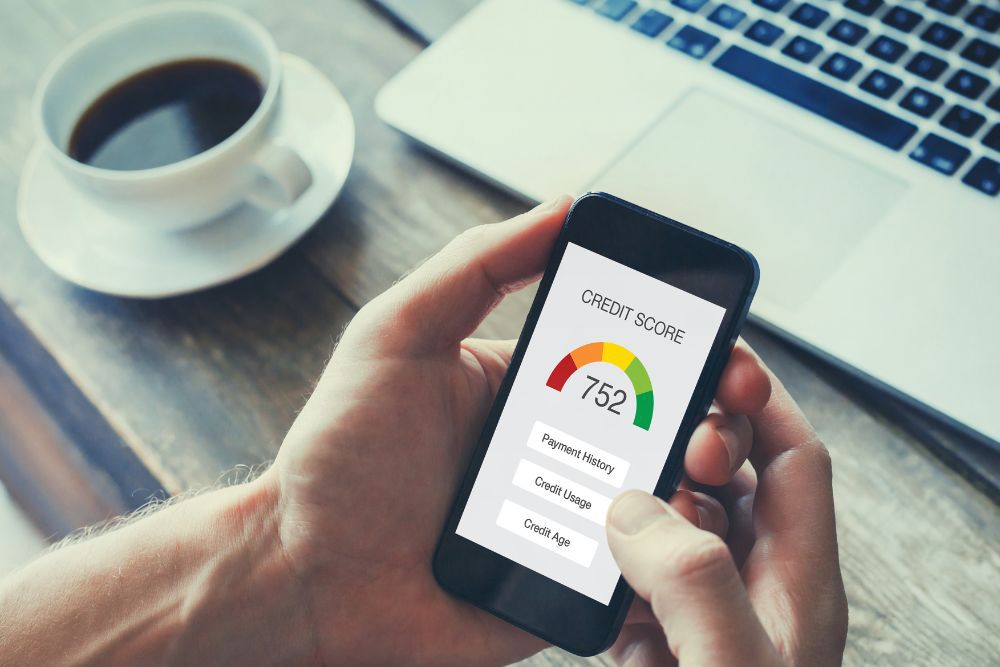

Business Loan Options Every Business Owner Should Know

Thinking of starting a business? Perhaps it has always been a dream to strike it out on your own? If that sounds like you, you are going to need a business loan.
Having enough capital will make a world of difference for your business which is why knowing where to get the best business loan is so important.
Here, we will discuss all you need to know about business loans and how you can apply for the one that suits your needs.
How Do I Qualify For Business Loans?

When it comes to business loans in Singapore, there is a wide range to choose from. Specific requirements differ, but some general eligibility criteria apply to most business loans in the market:
Businesses Need To Be More Than 1 Year Old
In general, your business should ideally be more than 1 year old before you can qualify to apply for these loans. That is because financial institutions want to make sure they lend to legitimate and stable businesses. With Capitall, the minimum operation of your business should be at least 10 months, and your company must be a Private Limited company registered with ACRA.
Loan Amount And Tenure
Each loan is subject to assessment. Loan amounts generally fall anywhere between S$5,000 and S$500,000 across various banks and private financial institutions.
As for the loan tenure, it’s usually pretty flexible, and it can be decided based on what suits your financial and business’ needs.
What Types Of Business Loans Can I Look At?

In general, there are a lot of types of business loans available. The ones listed here are mainly used for more significant expenses in the long run.
Micro Loans
Micro loans are the smallest loans available for SMEs in Singapore, with the maximum amount capped at S$100,000. Some banks and financial institutions in Singapore offer these loans together with Enterprise Singapore. The loan tenure is up to 4 years.
Many small businesses generally apply for micro loans to get funds, instead of other types of loans like business term loans. The flexibility to be used for many different purposes makes micro loans important for SMEs, especially since micro loans can be used for daily operations, equipment purchase, as well as urgent financial obligations.
Micro loans are a good fit for small businesses that require financing. So if you’re looking to borrow small and immediate funds, micro loans might be an option you want to look at for your business.
Unsecured Business Term Loans
Unsecured business term loans are one of the most common business loans. Some banks and private financial institutions refer to this kind of loan as simply a business loan. If you are looking for a flexible business loan, perhaps this is a great option to consider.
The main advantage of an unsecured business term loan is that it can be used for a variety of purposes. These include improving operational efficiency and enhancing cash flow. Its term loan is usually up to 5 years.
As the name suggests, unsecured business term loans do not require any form of collaterals to apply. This means that the loan can be assessed and disbursed in short notice.
Since business term loans are not secured with any form of collateral, interest rates will be higher as compared to secured loans, as the lender is taking more risk.
For this type of loan, you can choose to borrow from either banks or private financial institutions. The difference usually lies in the interest rates and how quickly you will have access to these funds.
Property Loans
In general, commercial properties have higher yields than residential properties and make for great investments. It makes sense for businesses that are doing well to start thinking about getting their own property.
There are a few ways you can go about purchasing a commercial property — either as an individual or as a company. Unlike most of the loans we’ve talked about before, property loans require way more paperwork.
Similar to home loans, commercial property loans have long tenures that can last as long as 30 years. Additionally, they are secured loans, which means that you’ll need to put up your property as collateral when applying for one. The lender has the right to seize the property should there be payment default.
Since properties in Singapore are high in costs, you’ll need to show that your business is capable of taking and repaying such a loan. You’ll need to show that you’re making profits, have positive cash flow, healthy balances, a positive net worth, and more.
Loans like these are best for companies that are stable and more established. After all, if your business is doing well and you are earning high returns, you will want to have a space you can call your own.
Equipment Financing
SMEs that require the long term use of equipment such as machinery should consider looking into equipment financing.
Bigger businesses that want a long term use of equipment but don’t have the funds to purchase it immediately can turn to equipment financing as well. In general, equipment financing is a business loan that provides you with the funds to buy equipment. The purchased equipment will be put up as collateral for the loan.
If you fail to repay the loan, the lender has the right to seize the purchased equipment, and liquidate it to repay the outstanding loan amount and any additional costs.
Generally, most financial institutions in Singapore will provide you with up to 90% of the equipment’s purchase price or valuation. Depending on the lender you’re borrowing from, the loan tenure is usually around 5 to 8 years.
There are also a host of factors that can affect whether you’re able to get an equipment loan since these loans can come up to a hefty sum. Your credit rating, the number of years your business has been running, and other requirements can affect the approval of your loan application.
Expansion Financing
See an opportunity to grow your business but lack the funds to do so? Expansion financing can provide you with the funds to do just that, allowing you to take advantage of trends and opportunities when they arise.
Generally, expansion financing can be used for a variety of purposes, as long as it goes towards growing your business. These include research and development to expand your product and service range, moving to a bigger location when your business outgrows the current location, and hiring more employees.
Expansion financing is also one of the business loans that Capitall provides.
To make things simpler, you can check out this summary table for the pros and cons of the business loans covered:
| Type | Pros | Cons |
| Micro loans | Lower interest rateCan be used for a variety of purposes | A lot of paperworkA lot of requirements to meet, as financial institutions work with Enterprise Singapore to provide them |
| Unsecured business term loans | Shorter loan application processNo collateral requirement | Higher risk for lendersHarder to qualify |
| Property loan | Lower interest rateHigher chance of approval due to collateral | A lot of paperwork |
| Equipment financing | Lower interest rateHigher chance of approval due to collateral | A lot of paperworkFinancial institutions can be stringent about the type of equipment they are willing to finance |
| Expansion financing | Can be used to grow your business | Higher risk for lenders |
Other Loan Options
Working capital loans are also another option to consider when deciding between what’s best for your business. Unlike the type of business loans listed in this article, working capital loans are mainly used to cover day-to-day expenses and are short term. Read more about these short term financing options here.
Essentially, taking out business loans is part and parcel of every business, whether your business is a start up, SME, or an established one. Knowing what kind of business loan options there are in Singapore, and which one to take is crucial in maintaining and growing your business.

































































































